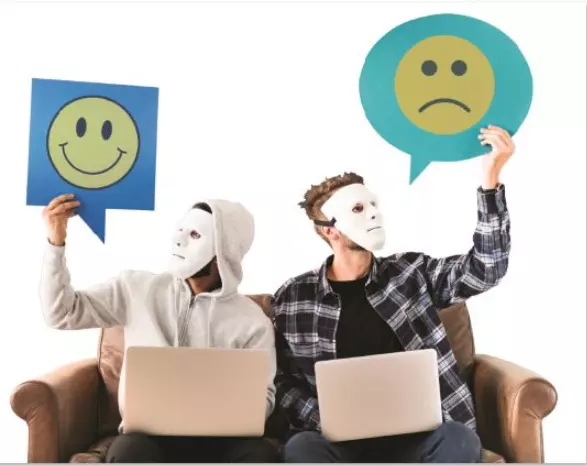How SEL equips students for a changing world
By incorporating SEL into education, both individual well-being and community resilience are strengthened, reinforcing its value as an essential component of holistic development

Does mugging up really boost academic performance? Sure, memorising facts can help but truly understanding a subject makes a bigger difference. At the same time, Social-Emotional Learning (SEL) and strong interpersonal skills play a huge role in academic success. When students have good emotional control, empathy, and communication skills, they handle stress better, build meaningful relationships, and stay motivated—all key to doing well in academics. In today’s world, SEL has become an essential part of education because of its deep impact on student success. Bringing SEL into the curriculum isn’t just helpful—it’s necessary for both personal and professional growth. Students with strong SEL skills stay more focused, make better decisions, and navigate their careers with confidence and integrity.
“SEL helps students develop self-awareness and self-regulation, which plays a transformative role in shaping student’s long-term success both in personal and professional life. Candidates with good interpersonal skills, emotional intelligence, and the ability to work in teams are always preferred by employers,” said Prof Mahadeo Jaiswal, Director, IIM Sambalpur.
The World Economic Forum in 2016 highlighted in a report that social and emotional skills can be developed at any point in a child’s life, although it can be highly effective to introduce SEL early and embed it in the core curriculum throughout a child’s schooling. Research suggests that early childhood is a critical period for attaining important skills – and also that augmenting such early learning at later ages is necessary, complementary and effective. Social and emotional skills can be taught in classrooms or at home but SEL is most potent if developed in both settings.
“The World Economic Forum (2016) emphasised the need to cultivate SEL skills like teamwork, adaptability, problem-solving, collaboration and communication in the future workforce. As technology advances, such skills remain irreplaceable. New pedagogical techniques like theatre technique and role plays, case method, and team-building activities contribute significantly towards developing these skills,” said Dr Manujata Gupta, Assistant Professor of Business Communication, BIMTECH.
In the 21st century, SEL has emerged as a critical educational framework and therefore, more countries are integrating SEL into the curriculum. NEP 2020 stresses the importance of SEL for children’s overall growth. It aims to shape individuals who think logically, act responsibly, and show kindness and empathy. According to Surbhi Sharma, Counselor - PYP Segment, GD Goenka World School, the inclusion of SEL in the curriculum has a significant impact on students’ long-term achievement outside of the classroom. “It develops vital life skills that are necessary for both professional and personal development, including emotional control, empathy, resilience, and effective communication,” she said.
With internationalisation of education and global exposure, today’s kids need to have enough cognitive and emotional development to survive in challenging professional spaces. “SEL promotes global citizenship, equipping students with the emotional tools to navigate challenges, collaborate with others, and engage with the world thoughtfully and responsibly. When SEL is integrated into the curriculum, it supports students’ holistic development, nurturing their emotional, social, and cognitive growth to help them thrive in all areas of life and set them up for success post-graduation,” said Amanda Dayal, Whole School Head of Student Support Services, Stonehill International School.
Now, let’s understand the advantages of SEL cannot be adequately measured by traditional academic metrics alone. Grades evaluate cognitive abilities, but SEL affects interpersonal development, emotional resilience, and decision-making—aspects that traditional tests do not account for, said Dr Priti Ojha, Principal, Seth M.R.Jaipuria Schools, Bhiwadi. “It is not a classroom teaching period to be assessed, it is a retreat of physical, vital and mental being of a child. Every child will assess themselves and the teacher has to observe the progress,” she said.
Many countries, including Finland, Singapore, and South Korea, are prioritising SEL in education. Finland incorporates SEL into collaborative learning and well-being programmes, while Singapore promotes emotional resilience through its Character and Citizenship Education (CCE) programme. Sushma Raturi, Head of Teaching, Learning, and Training, Seth Anandram Jaipuria Group of Educational Institutions, believes advancements in AI and data analytics are revolutionising SEL measurement by analysing large datasets to identify trends and patterns over time. While still evolving, these technologies hold great potential for scaling SEL assessments and improving their precision. “Given the strengths and limitations of both traditional and modern approaches, a hybrid model—integrating quantitative data with qualitative insights—is increasingly recognised as best practice. This comprehensive evaluation framework balances measurable outcomes with contextual understanding, ensuring a more effective and actionable assessment of SEL,” she said.



